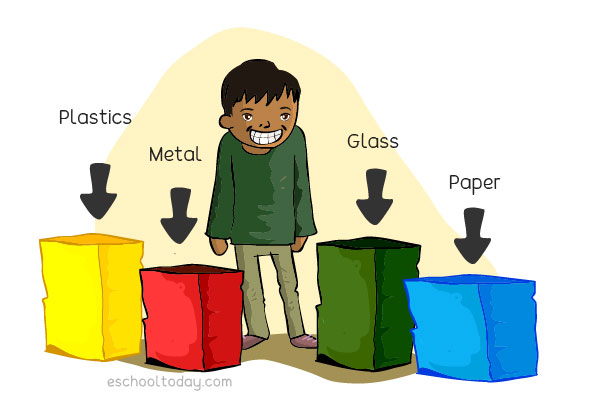- Waste management
What is Waste Recycling?
Recycling is processing used materials (waste) into new, useful products to reduce the use of raw materials that would have been used. Recycling also uses less energy and a great way of controlling air, water, and land pollution.
Effective recycling starts with the household (or the place where the waste was produced). In many countries where the people are serious about the environment, the authorities help households with bin bags with labels on them. They sort out the waste themselves and place them in the appropriate bags for collection. This process makes waste collection efficient.

Waste items that are usually recycled include:
Paper: Paper waste items include books, newspapers, magazines, cardboard boxes, and envelopes.
Plastic: Items include plastic bags, water bottles, rubber bags, and plastic wrappers.
Glass: All glass products like broken bottles, beer, and wine bottles can be recycled.
Aluminum: Cans from soda drinks, tomatoes, fruit can be recycled.
Did you know: Recycling just 1 ton of aluminum cans conserves more than 207 million Btu, the equivalent of 36 barrels of oil, or 1,665 gallons of gasoline. —EPA
When the waste types are collected, they are sent to the recycling unit, where waste from each group are combined, crushed, melted, and processed into new materials.
Importance and benefits of waste recycling
- Recycling helps protect the environment:
This is because the recyclable waste materials would have been burned or ended up in the landfill. Pollution of the air, land, water, and soil is reduced.
- Recycling conserves natural resources:
Recycling more waste means that we do not depend too much on raw (natural) resources, which are already massively depleted.
- Recycling saves energy:
It takes more energy to produce items with raw materials than from recycling used materials. This means we are more energy-efficient and the prices of products can come down.
- Recycling creates jobs:
People are employed to collect, sort, and work in recycling companies. Others also get jobs with businesses that work with these recycling units. There can be a ripple of jobs in the municipality.
